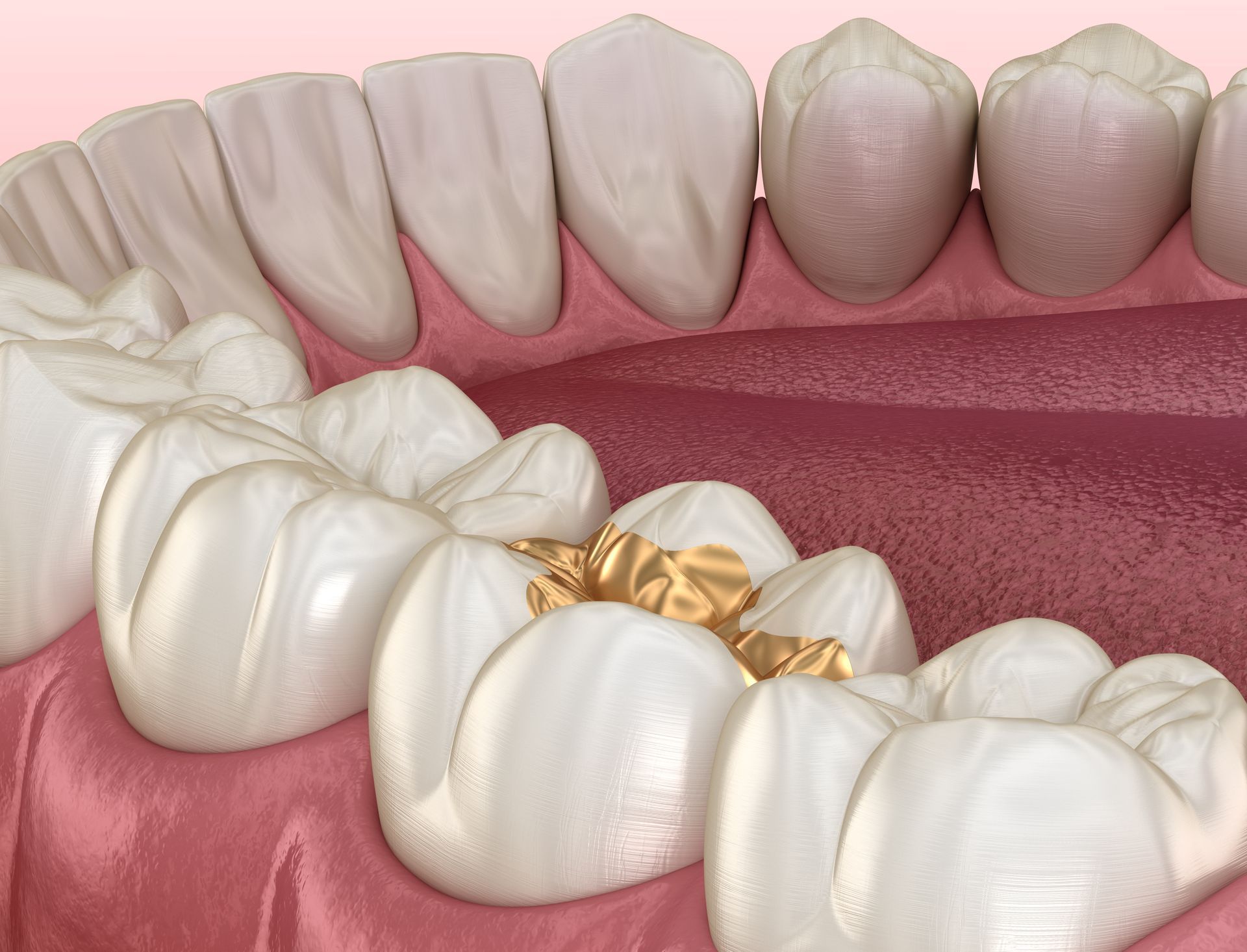How to Prepare for Your Root Canal Treatment in Westport: 7 Tips
When faced with the prospect of a root canal treatment in Westport, many patients experience a range of emotions, from anxiety to uncertainty. However, understanding the process and preparing adequately can significantly alleviate these feelings. At Distinctive Dental Service, we prioritize your comfort and well-being, ensuring that your experience is as smooth and stress-free as possible. Here are seven essential tips to help you prepare for your upcoming root canal treatment.
Understand the Procedure
Before diving into preparations, it's crucial to familiarize yourself with what a root canal entails. A root canal is a dental procedure designed to treat infection or damage to the pulp of a tooth. During the treatment, your dentist will remove the infected pulp, clean the inside of the tooth, and seal it to prevent further infection. Knowing the steps involved can help demystify the process and reduce anxiety. At Distinctive Dental, our team of experts, including Dr. Efren Cortes and Dr. Kevin Modera, are dedicated to explaining every aspect of the procedure, ensuring you're well-informed and comfortable.
Schedule a Consultation
Before your treatment day, scheduling a consultation with your dentist is vital. This appointment allows you to discuss any concerns or questions you may have about the root canal procedure. Your dentist will assess your dental health, explain the treatment plan, and provide personalized recommendations. This is also an excellent opportunity to discuss any medications you're currently taking, as certain prescriptions may influence your treatment. Having this open line of communication with your dental care team helps build trust and ensures that you feel supported throughout the process.
Follow Pre-Treatment Instructions
Your dentist may provide specific pre-treatment instructions to ensure your treatment goes smoothly. This may include guidelines on dietary restrictions or medications to avoid leading up to your appointment. For instance, if you’re prescribed antibiotics to eliminate any existing infections, it’s essential to follow the dosage instructions carefully. Adhering to these guidelines not only prepares your body for the treatment but also contributes to a more successful outcome.
Arrange for Transportation
While many root canal procedures are straightforward and can be performed under local anesthesia, it’s wise to prepare for transportation to and from your appointment. Depending on the complexity of your treatment, you may feel groggy or disoriented after the procedure. Having a trusted friend or family member accompany you ensures you arrive home safely without the added stress of navigating public transport or driving yourself.
Dress Comfortably
On the day of your root canal treatment, consider wearing loose, comfortable clothing. You may be in the dental chair for an extended period, and comfort is key to your overall experience. Additionally, wearing a short-sleeved shirt or something that allows easy access to your arm can facilitate the administration of any necessary anesthesia. Feeling at ease in your attire can help you relax and focus on your treatment rather than any discomfort from restrictive clothing.
Prepare for Aftercare
Post-treatment care is just as important as the procedure itself. Your dentist will provide specific aftercare instructions to promote healing and prevent complications. Generally, you may experience some discomfort or swelling after the procedure, and it’s essential to have over-the-counter pain relief medication on hand, as recommended by your dentist. Additionally, preparing soft foods that are easy to chew can help you manage your diet in the first few days following your treatment. Remember, maintaining good oral hygiene is crucial during this recovery period, so be sure to follow your dentist's recommendations closely.
Stay Calm and Positive
Finally, maintaining a positive mindset can significantly impact your experience during root canal treatment. While it’s natural to feel apprehensive, focusing on the benefits of the procedure can help soothe your nerves. A successful root canal can save your tooth and alleviate pain, leading to improved dental health and comfort. Take deep breaths, listen to calming music, or practice mindfulness techniques to keep anxiety at bay. Your dental team is there to support you, and together, you’ll navigate this experience with confidence.
Preparing for your root canal treatment in Westport is a proactive step toward ensuring a successful procedure. By understanding the process, attending consultations, following pre-treatment instructions, and preparing for aftercare, you can enhance your overall experience. At Distinctive Dental Service, our mission is to provide you with the highest quality care while prioritizing your comfort and well-being.
Frequently Asked Questions:
1. What is a root canal, and why might I need one?
A root canal is a dental procedure used to treat an infected or damaged tooth pulp (the soft tissue inside your tooth). It is typically needed when a tooth is severely decayed or has suffered trauma, leading to an infection or inflammation that cannot be treated with fillings alone. The procedure removes the infected tissue, cleans the tooth, and seals it to prevent further infection, helping save the tooth.
2. Does root canal treatment hurt?
Root canal treatment is typically not painful due to the use of local anesthesia, which numbs the area around the affected tooth. Many patients report feeling little to no discomfort during the procedure. After the treatment, mild discomfort or sensitivity may occur, but this is usually temporary and can be managed with over-the-counter pain relievers.
3. How long does a root canal treatment take?
The length of a root canal procedure varies depending on the tooth and its condition. Generally, it takes between 60 to 90 minutes. More complex cases or molars may require additional time or multiple visits. Your dentist will provide an estimate based on your specific situation.
4. What should I do before my root canal appointment?
Before your root canal treatment, it's important to follow any pre-treatment instructions your dentist provides. This might include avoiding certain foods or medications. Be sure to communicate any medications you're currently taking to your dentist. Also, schedule a consultation to discuss your concerns and review your treatment plan.
5. Can I eat before my root canal appointment?
You can eat before your root canal treatment, but it’s generally a good idea to avoid heavy meals if you're receiving anesthesia. This helps prevent any nausea during or after the procedure. If you're taking antibiotics or other medications, follow your dentist’s specific instructions about eating.
6. Will I need someone to drive me home after the procedure?
While root canal treatments are typically performed under local anesthesia, you may feel groggy or disoriented after the procedure, especially if sedation is used. It's recommended to arrange for someone to drive you home, ensuring you can relax and recover safely without the stress of driving.
7. How long will it take to recover after a root canal?
Recovery time varies from person to person, but most patients experience minimal downtime. You may have some soreness or swelling for a few days, but this should subside with proper care and any prescribed pain relievers. Be sure to follow your dentist’s aftercare instructions for the best recovery.
8. Can I go back to work after a root canal?
Many patients can return to work the same day, especially if the procedure was straightforward and done under local anesthesia. However, if you experience significant discomfort or sedation was used, you may want to take the day off to rest.
9. How do I care for my tooth after a root canal?
After your root canal, your dentist will provide detailed aftercare instructions. This typically includes avoiding chewing on the treated tooth for a few days, taking prescribed or over-the-counter pain relievers, and maintaining good oral hygiene. Your dentist may also schedule a follow-up appointment to ensure the tooth is healing properly.
10. What happens if I don’t get a root canal when needed?
If left untreated, an infected tooth can lead to severe pain, an abscess, and the eventual loss of the tooth. The infection may spread to other areas of your mouth, potentially causing further complications. A root canal is designed to save the tooth and prevent these issues.












